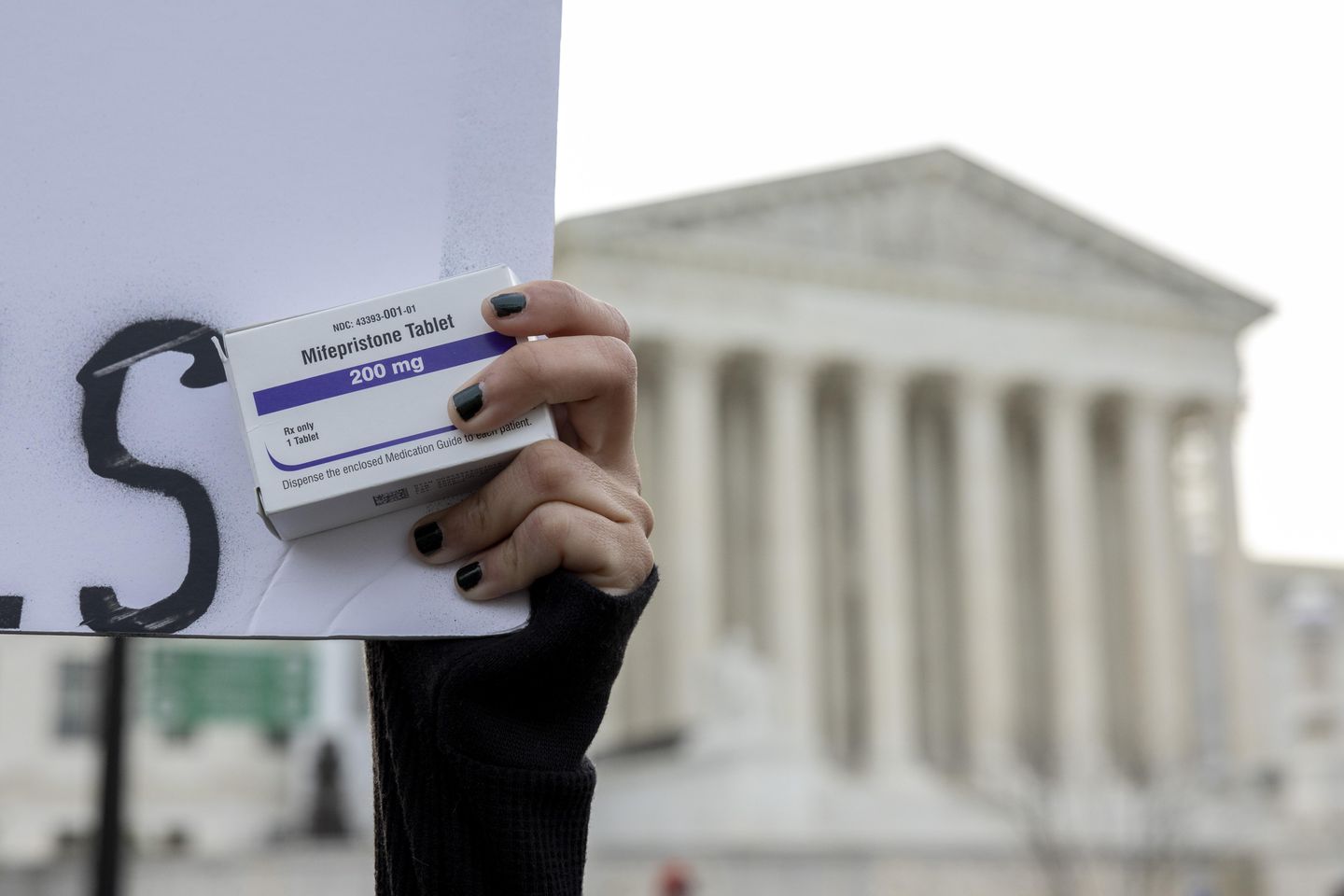
The abortion pill has become so easily accessible that even men can obtain it, with potentially disastrous consequences for pregnant women. Here’s what you need to know about coerced abortion cases and changing regulations:
The accessibility concerns
FDA rule changes make abortion pills easier to obtain:
- A half-dozen men have been accused of slipping pills to their pregnant wives or girlfriends since the Food and Drug Administration relaxed its safeguards on mifepristone in 2021
- FDA allowed abortion-inducing drug to be prescribed via telehealth without in-person medical visit and delivered by mail
- “Coerced and forced abortions are already happening,” said Melanie Israel, visiting fellow at conservative Heritage Foundation, in her Sept. 2 report
- “And every time safety protocols are degraded, it becomes easier for an unsupportive partner, abuser, or trafficker to harm women, girls, and unborn children”
The documented incidents
Heritage Foundation tracks cases of coerced abortion pill use:
- Israel’s newly updated database lists 17 incidents since 2015 in which third parties, usually men, were accused of surreptitiously giving pills to pregnant women without their knowledge or strong-arming them into taking drugs
- Most but not all incidents resulted in criminal charges
- More often than not, alleged perpetrator succeeded in terminating pregnancy
- First such incident on Heritage Foundation list dates back to 2015, but pro-life advocates said risks surged after FDA eliminated in-person dispensing rule in 2021
The recent criminal cases
Several men face serious charges for secretly administering pills:
- Emerson Evans, a 31-year-old Illinois man, was charged last month with intentional homicide for allegedly inserting four mifepristone pills into his pregnant girlfriend’s vagina
- She lost the baby, according to Illinois Newsroom
- In June, Texas Rangers in Tarrant County charged Justin Anthony Banta, 38, with capital murder and tampering with evidence for allegedly spiking his girlfriend’s drink and cookies with abortion-inducing drugs after she refused to end pregnancy
- Girlfriend suffered heavy bleeding and went to emergency room next day but lost baby
The Houston attorney case
Texas lawyer pleaded guilty to assault on pregnant person:
- Last year, Mason Herring, a 39-year-old Houston attorney, pleaded guilty to injury to child and assault on pregnant person
- Put abortion-inducing drugs in his pregnant wife’s water in 2022
- He was sentenced to 180 days in jail and six months’ probation
- Baby survived but was born 10 weeks early and has developmental delays
The Louisiana legislative response
State classifies abortion pills as controlled substances:
- Last year, Louisiana Gov. Jeff Landry, Republican, signed first-of-its-kind legislation classifying mifepristone and misoprostol as controlled and dangerous substances
- Legislation was introduced by Republican state Sen. Thomas Pressly, whose sister, Catherine Herring, was married to Mason Herring
- Catherine Herring delivered their baby early after Mason Herring doctored her drinks seven times
- She grew suspicious after being hospitalized once, saved samples of beverages and turned them over to police
The Texas enforcement approach
New law allows civil lawsuits against distributors:
- Texas Legislature took action earlier this month by passing House Bill 7, which gives residents standing to bring civil lawsuits against those who manufacture and distribute abortion pills
- Damages start at $100,000 per pill under bill known as Woman and Child Protection Act
- Expected to be signed shortly by Republican Gov. Greg Abbott
- “HB 7 aims to stop abortion pills in the first place,” said Texas Right to Life spokesperson Kim Schwartz
The opposition arguments
Planned Parenthood calls Texas legislation about control:
- Opposing bill is Planned Parenthood Texas Votes, which said Republican-led Legislature “fast-tracked cruelty through second special session”
- “HB 7 isn’t just about Texas; it’s designed to intimidate doctors, pharmacists, and manufacturers everywhere into cutting off access to medication abortion across country”
- “This isn’t about safety. It’s about control. Texans deserve access to healthcare, not endless bans and persecution”
- Organization frames legislation as targeting healthcare access broadly
The enforcement challenges
Officials cite gaps in stopping illegal pill distribution:
- As many as 19,000 abortion pills flow into Texas each year through online companies like Aid Access, according to Texas Right to Life
- “There are penalties attached to it, but we’ve found enforcement gap because a lot of illegal activity is originating in other states or in other countries,” said Texas Right to Life President John Seago
- Texas Attorney General Ken Paxton sent cease-and-desist letters last month to three distributors warning them to stop shipping abortion pills into Texas
- Letters threatened civil penalties of no less than $100,000 for violating Human Life Protection Law
The disputed cases
Not all allegations result in clear legal outcomes:
- In lawsuit filed last month, Liana Davis, 37, of Corpus Christi, accused 34-year-old Marine Capt. Christopher Cooprider of spiking her hot chocolate
- She claims it caused her to hemorrhage and lose baby
- He has countersued for $1 billion in damages, accusing her of lying and saying he ordered abortion pills at her request
- His lawsuit says Corpus Christi Police Department declined to pursue charges after investigating
Read more:
• Cases of men spiking women’s drinks with abortion pills raise alarm about FDA rules
This article is written with the assistance of generative artificial intelligence based solely on Washington Times original reporting and wire services. For more information, please read our AI policy or contact Ann Wog, Managing Editor for Digital, at awog@washingtontimes.com
The Washington Times AI Ethics Newsroom Committee can be reached at aispotlight@washingtontimes.com.











